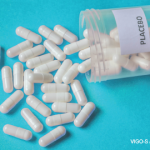NEW YORK (Reuters Health)—Some placebos are more effective than others, and these differences can influence the apparent outcomes of clinical trials, according to a systematic review and meta-analysis of osteoarthritis trials.
“More surprising than the fact that all placebos are not equal is the magnitude of that difference,” Dr. Raveendhara R. Bannuru, from Tufts Medical Center, Boston, told Reuters Health by email. “In particular, we found that intra-articular placebo was more effective than the active drug Tylenol.”
In a recent study, Dr. Bannuru’s team found that conclusions regarding the effectiveness of various pharmacological treatments for knee osteoarthritis could differ based on how alternative placebos were treated within a network analysis model.
Their current investigation used a network meta-analysis to determine whether the different placebo interventions used in knee osteoarthritis trials differ in efficacy and to quantify the effect of differential placebo effects on active-treatment effect estimates.
Intra-articular placebo and topical placebo had significantly greater effects than oral placebo, with the effect size of oral placebo being comparable to that of acetaminophen.
The effect sizes increased with the increases in mean baseline pain scores, such that every 10-point increase over a mean of 50 points translated into a 1.5-point increase on a 0–100 scale, according to the July 28 Annals of Internal Medicine online report.
The choice of placebo significantly influenced the apparent relative effect sizes of active treatments. Depending on the placebo model used, for example, the ranking of oral nonselective nonsteroidal anti-inflammatory drugs could range from third to most effective.
“Our results should be interpreted with care,” the researchers noted. “The purpose of this study was not to determine the presence versus absence of an absolute placebo effect but rather to determine the relative effects of different placebo interventions. This analysis enabled us to consider how these differences affect estimates of active treatment effects, as well as to better understand the embedded therapeutic benefit that placebo interventions may confer.”
“The take-home message for physicians and researchers is that placebos are not null in efficacy, nor are they equivalent to one another,” Dr. Bannuru said. “Physicians should consider the method of administration when choosing knee osteoarthritis treatments. For researchers, selection of appropriate placebo controls is an important consideration in the design of future clinical trials. Also, the comparative effectiveness of active treatments depends on the type of placebo it is being compared to.”
“Future research is needed to rule out potential confounders, such as differences in trial design or study populations, that could otherwise explain these differences among placebos,” Dr. Bannuru added. “Such endeavors could thereby confirm the potential clinical benefits associated with treatment administration methods.”


